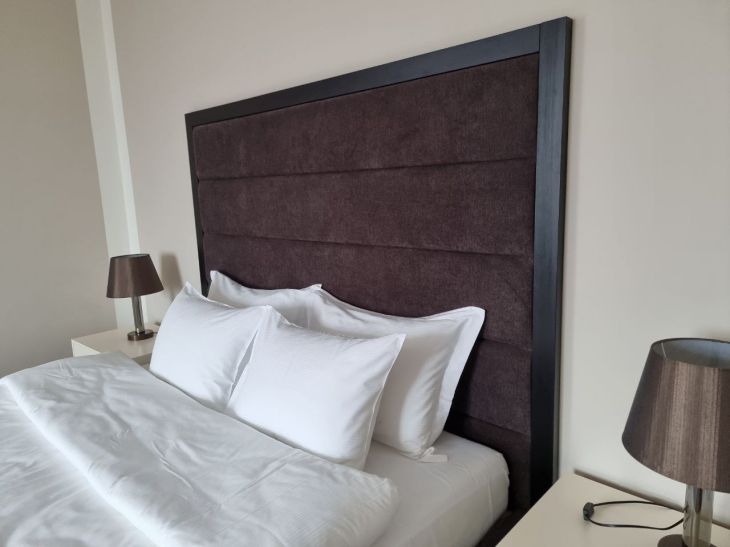Small Bedroom Design: 10 Arrangement Ideas from an Experienced Designer
Planning a small bedroom requires creativity and strategic thinking, as every inch counts.
Thoughtful design can transform a cramped space into a cozy one.
Measure and estimate the space
Before you start designing, first measure the dimensions of the bedroom, says Yulia Tychino, an expert on design and architecture at the MOS SMI portal.
Pay attention to important architectural features such as windows, doors and built-in furniture, as these will be critical in creating a layout that optimises the available space.
Decide on the main subjects
Choose the basic elements you need in a bedroom. This usually includes a bed, storage space such as wardrobes, and perhaps a small workspace.

Choose the right bed
Choose a bed that fits the size of the room. A platform bed or one with built-in storage can save space by eliminating the need for a separate dresser.
You can even consider a loft bed if you want to create extra space.
Choose compact furniture
Opt for furniture that serves multiple purposes.
A bedside table with drawers, for example, can be used as storage space, and a fold-out desk can serve as both a workspace and a dressing table.
Use vertical space
Make the most of vertical space by installing wall shelves or cabinets. Not only does this add storage space, but it also draws the eye upward, creating the illusion of higher ceilings.
Choose tall, narrow dressers instead of wider ones to maximize the space in your bedroom.
Create different zones
Divide the room into functional zones to make it feel more spacious and organized. Use rugs or arrange furniture to create sleeping, working, and storage areas to avoid clutter in the bedroom.
Mirrors
Mirrors can visually expand a small space by reflecting light and creating the illusion of depth.
Consider adding a full-length mirror or mirrored furniture. This will add a touch of glamour while making the bedroom appear larger.
Don't forget about lighting
Proper lighting is especially important in a small bedroom. Use a combination of ambient, functional, and accent lighting to create a well-lit and cozy space.
Wall sconces or pendant lights can help free up space on your bedside table.
Add neutral colors
Choose a neutral color palette to make the space feel more cohesive and open.
Light colors on the walls and furniture create an airy atmosphere. Consider a monochrome scheme to visually expand the space.
Clean regularly
Keep only the essentials to keep your room clean and tidy.
Consider storage solutions that hide items to avoid visual clutter.
Earlier we wrote about how to make your interior look more expensive.
